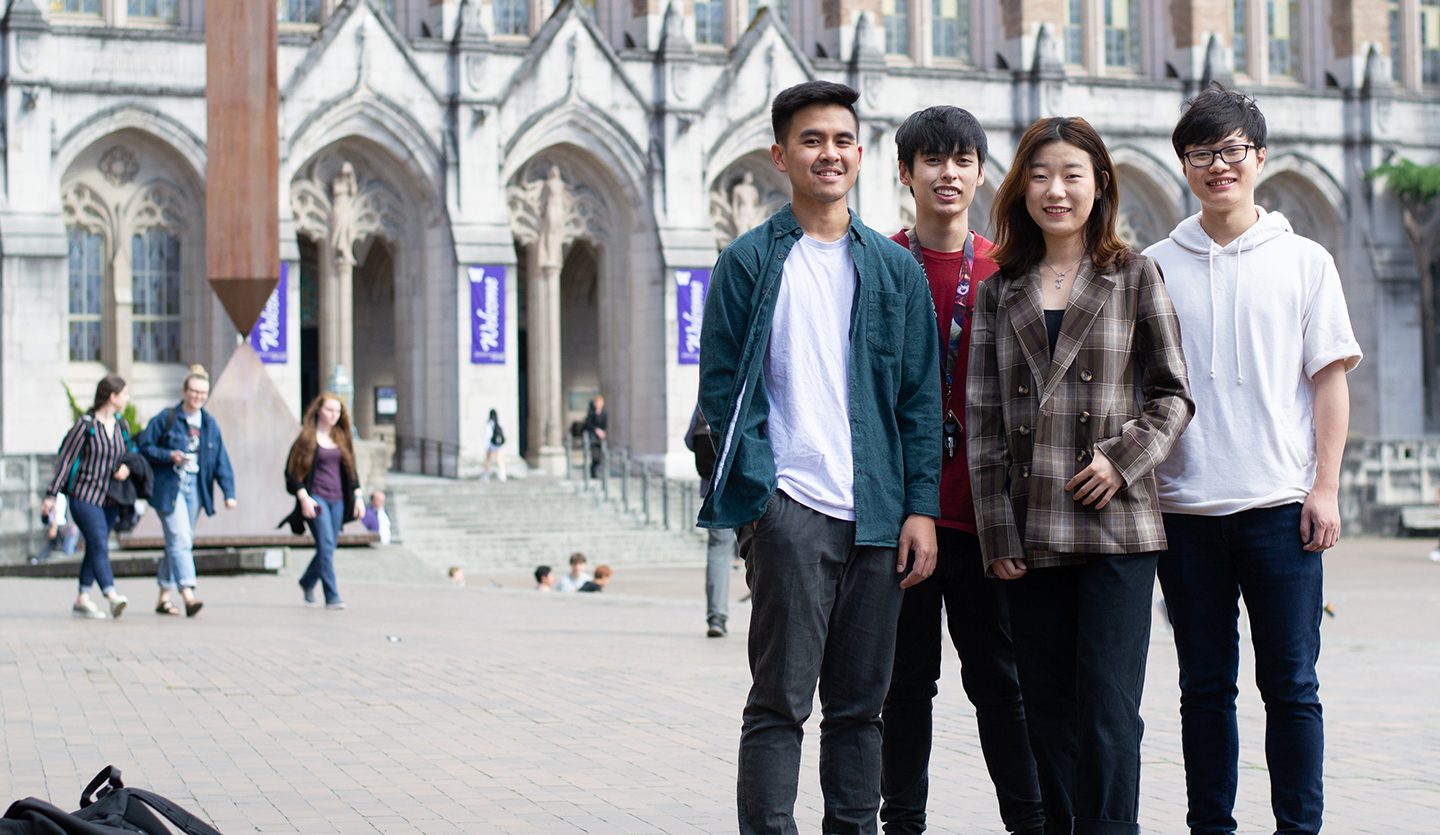Four Informatics students are using the skills they’ve learned at the UW Information School to help make Seattle a great place to grow up and grow old.
The team — (pictured, from left) Muhammad Hariz, Davis Huynh, Estelle Jiang and Liyuang Fu — has created an interactive, accessible website and assessment test for Age Friendly Seattle, a program of the city’s Aging and Disability Services. The work is the team’s project for Capstone, which puts iSchool students’ skills to use to solve a real-world problem.
The project began because the city needed a new technology tool to advance its mission of making Seattle more age-friendly, but it didn’t have the resources to make that happen.
Irene Stewart, the communications manager for Aging and Disability Services, and Sarah Demas, Age Friendly Seattle coordinator, were familiar with the iSchool and its programs. They, along with other potential sponsors, brought their idea to the iSchool and presented it to Capstone students.
Fu, Hariz, Huynh and Jiang thought the idea was a great fit for their skills and matched nicely with the goals of the iSchool.
“This project was particularly exciting, since we are working with the Aging and Disability Services at the City of Seattle,” Fu said. “We found that the project idea resonates with the iSchool’s goal to use information for a social good.”
For their project, the team has designed a website from the bottom up, using content provided by their sponsor. The website has two main focuses. First, it provides educational information to help businesses become more age-friendly, both for their customers and their employees. The second element is a test that business owners or managers can take to help them see where they need to improve.
The team began the project by focusing on the design of the website. Jiang did the initial design, and the team worked together to run it through focus groups and conduct user interviews. With that feedback, the team improved the design to better meet the sponsor’s needs. The iSchool had prepared the team well for the process.
"I think that was their response to pretty much everything we put in front of them — to make it work."
“Through the iSchool, I learned how to ask better questions to draw out specific details about what stakeholders need,” Huynh said. “This has helped tremendously, since we were then able to scope our project better and get to designing and developing faster.”
Jiang appreciates that even though she is focused on design, she has learned a much wider range of skills from the iSchool. She understood how the technology behind the site would work, and she knew what the team’s developers could and couldn’t do, which allowed her to design a user-friendly product that would also work well with the appropriate technology.
“I’m not just a designer,” she said. “I know and understand both sides of the project — and I can also be a project manager and keep track of and understand the process.”
Once the students had a good idea of the design of the website, they began building the technology to support it. This required them to be creative and flexible. The people who would be maintaining the website and assessment test needed everything to be simple and easy to use. And it all needed to work with the technology that the city and its consultants were already using. The team had to master new tools to make all the pieces fit together, including figuring out how to make Vue.js, which they hadn’t used before, work with WordPress. They also worked to ensure the website considered accessibility, so people of all abilities could use it.
The students embraced the challenge.
“The most exciting part of this project for me was learning technology that I did not learn in class, and then applying that to the project,” Hariz said.
The students also needed to consider the city’s focus on data privacy. Originally, the team’s test for business owners and managers was intended to be a tool that would track progress over time. But as the students worked with their sponsors, it became clear that the data tracking wouldn’t be possible, given time limitations and the city’s rules about privacy. So the team shifted to make the test function as an effective learning tool while still protecting users’ privacy.
Stewart and Demas appreciated how the team was able to adapt to Age Friendly Seattle’s needs.
“The team was really flexible about understanding the restraints,” Demas said. “I think that was their response to pretty much everything we put in front of them — to make it work. … They had great workplace skills. They were a very professional team and they have really delivered with a great quality product.”
